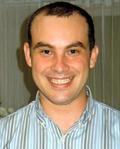Cited By
View all- Rao NJain KAlon UGoues CHellendoorn V(2023)CAT-LM Training Language Models on Aligned Code And Tests2023 38th IEEE/ACM International Conference on Automated Software Engineering (ASE)10.1109/ASE56229.2023.00193(409-420)Online publication date: 11-Sep-2023


